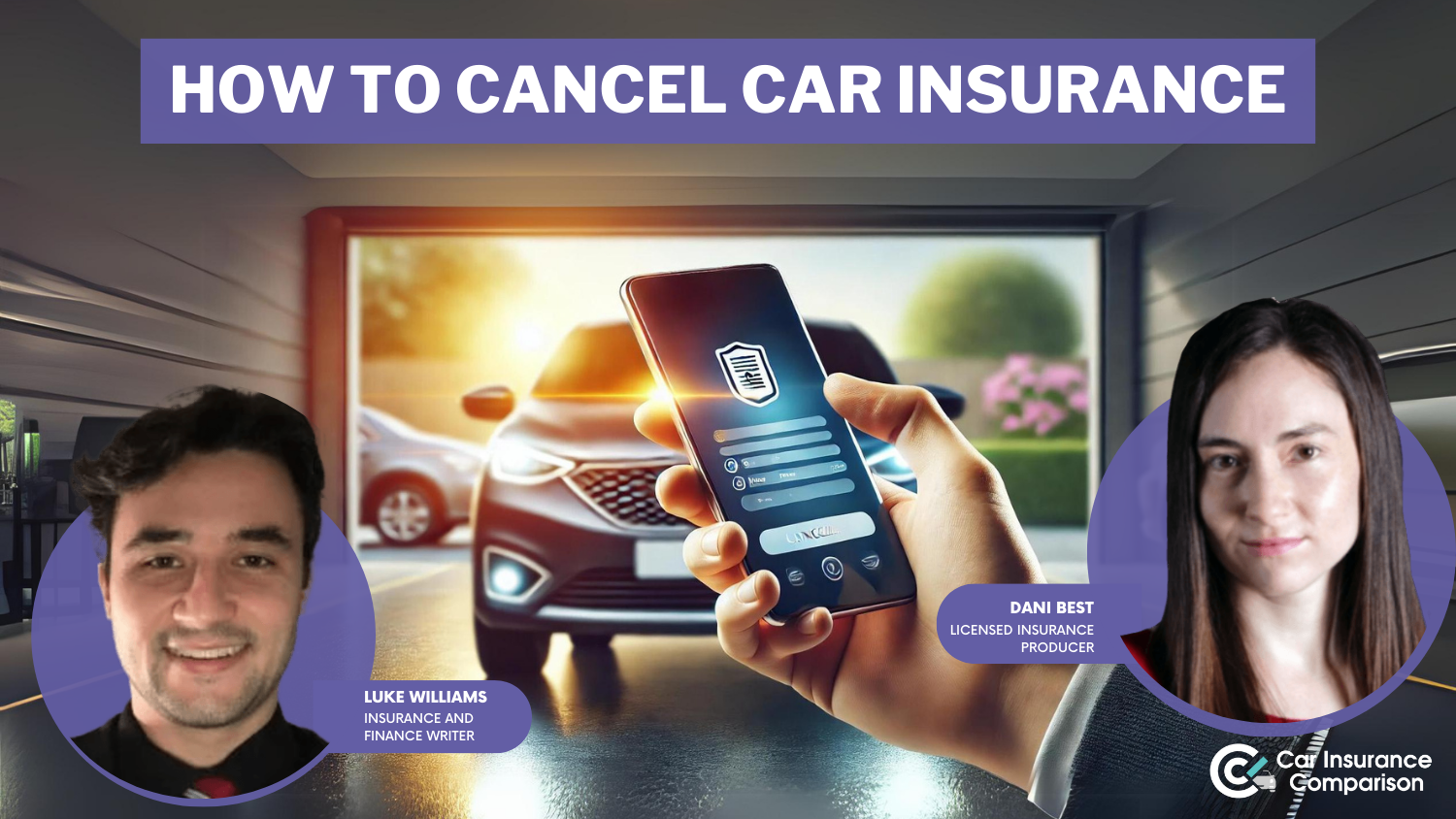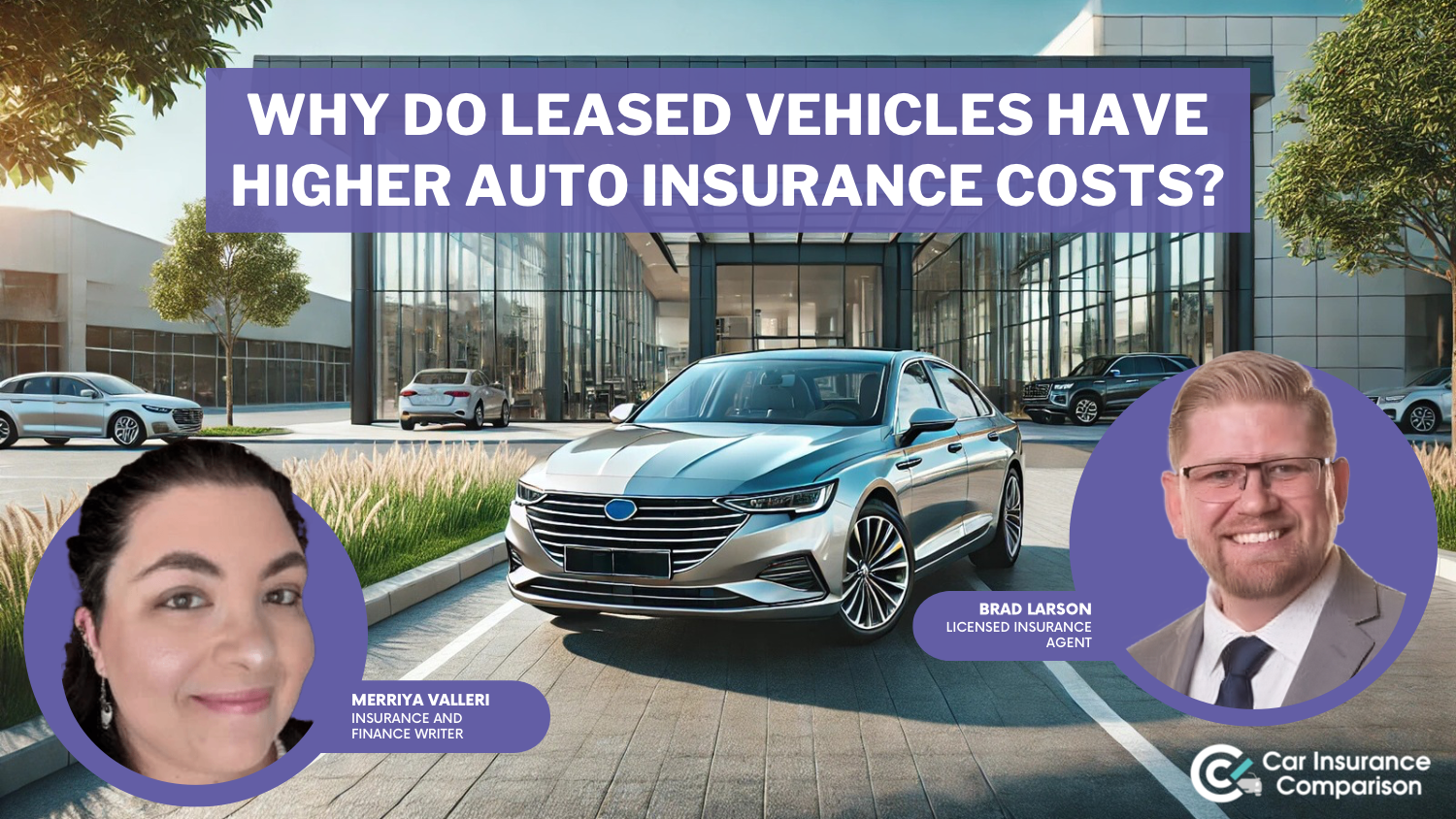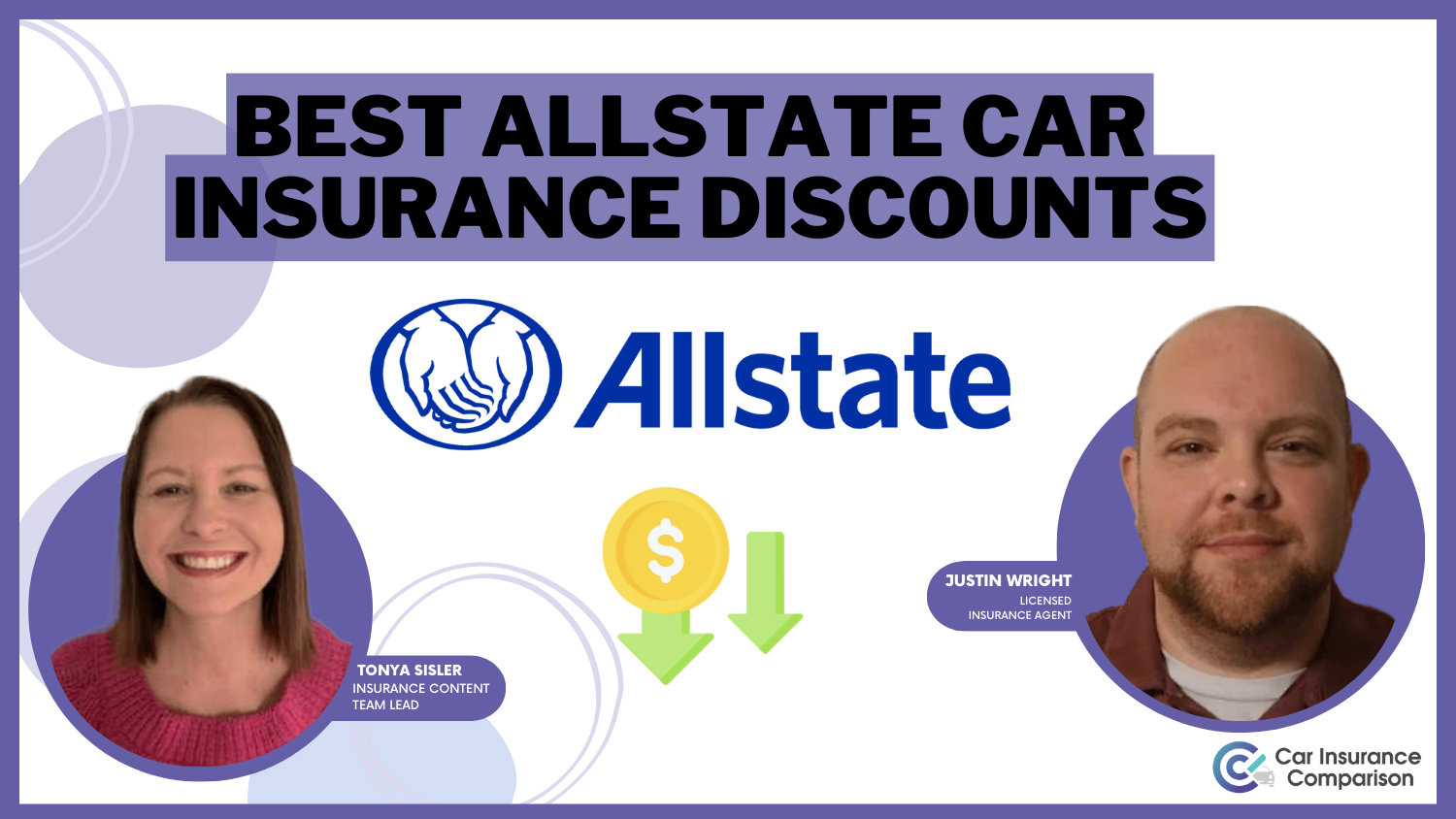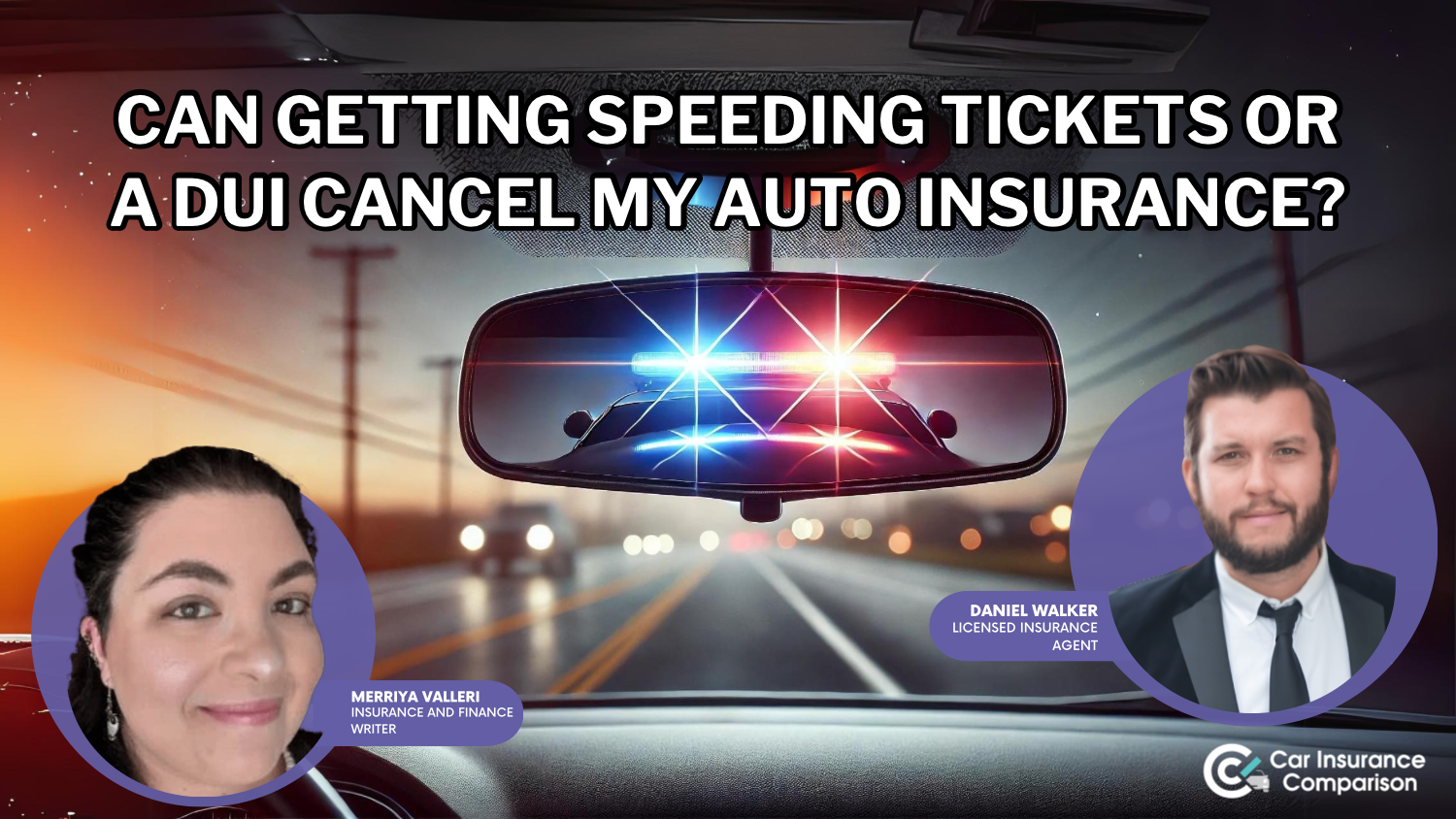What questions do car insurers ask?
The questions that car insurance companies ask are where do you live, what kind of car you drive, where do you work, and more. Your risk in filing a claim is determined by the questions that car insurance companies ask.
Read more Secured with SHA-256 Encryption





Table of Contents
Table of Contents


Insurance and Finance Expert
Laura Gunn is a former teacher who uses her passion for writing and learning to help others make the best decisions regarding finance and insurance. After stepping away from the classroom, Laura used her skills to write across many different industries including insurance, finance, real estate, home improvement, and healthcare. Her experience in various industries has helped develop both her ...
Laura Gunn


Licensed Insurance Agent
Daniel Walker graduated with a BS in Administrative Management in 2005 and has run his family’s insurance agency, FCI Agency, for over 15 years (BBB A+). He is licensed as an insurance agent to write property and casualty insurance, including home, life, auto, umbrella, and dwelling fire insurance. He’s also been featured on sites like Reviews.com and Safeco. To ensure our content is accura...
Daniel Walker
Updated October 2024
Applying for auto insurance is an involved process. You can’t just tell the insurer how much insurance you want and expect the insurer to comply by handing over a deposit.
Instead, before an insurance company will extend an offer for coverage to any prospective policyholder they’ll expect that person to answer a long list of application questions.
The answers to these questions, while they might not always seem relevant, are extremely important to companies who offer a large amount of financial protection in exchange for a small premium.
Start comparing car insurance rates now by entering your zip code in our FREE tool above!
- When insurers provide quotes to prospective clients, they ask a list of questions to rate the household and give the most accurate estimate possible
- Insurance applications include a list of questions that are reviewed by underwriters before the policy is issued
- All of the questions are relevant to risk and are used to determine if the policyholder qualified for coverage and how much the company needs to charge
How does the car insurance application process work?
The application process always starts with a quote. Once you’ve solicited quotes, provided the necessary information and then compared pricing, the next step in the process would be to proceed with an application.
When you fill out your application, you’ll be asked for even more detailed information than you’re required to provide while you’re just getting estimates.
Once the application is submitted to the company, it will be reviewed by a team of professionals called underwriters.
Underwriters review the information that’s been provided on the application to be sure that there are not any errors and that the named insured was upfront and honest.
It’s the underwriter’s job to assess risk and to decide which applications to issue as quotes, which to issue with higher premiums, and which to cancel.
Free Insurance Comparison
Compare Quotes From Top Companies and Save
Secured with SHA-256 Encryption
How long does it take for applications to be reviewed?
Insurance carriers aren’t free to just review your application at any time during the term to decide if it’s necessary to adjust premiums.
Instead, the companies are given a specified time frame where they can underwrite an application and take action.
If a company doesn’t take action during the limited time frame, they must wait until the renewal to change rates or order cancellation.
Knowing your consumer rights is critical when buying a financial product like insurance. In most cases, companies have a 30 to 60-day binding period where they can review the application and make a decision other than taking on the risk.
You as a client are free to cancel your policy at any time, but insurers can’t.
Some of the actions companies can take include:
- Rate surcharges or revisions when policy is issued
- Cancellation notice that includes a future date and reason for termination
Why are application questions so important?
Application questions are completely tied to premiums.
To stay in business, auto insurance carriers need to hire actuaries who do a great deal of research to identify risks, target market segments, and to project how many claims will be filed throughout the year.
Since insurance is a risk pool of thousands of people who share risk, it is at the forefront as policies are being issued.
People who’re more likely to use money from the pool are going to put more money in.
Companies can’t reasonably charge a household the right amount of money to cover the risk if they don’t have a view of the big picture.
To get this view, the company will ask those application questions that all potential insureds must answer.
The application is the closest thing a company has to following around a driver to see how they drive, where they drive, and if they’re responsible.
What happens if insurance companies don’t underwrite properly?
To really know how important application questions are to insurers and even to yourself, you’ll need to know what can happen if insurers aren’t diligent in developing and underwriting applications.
The biggest consequence of failing to underwrite and assess risk is that the company will be obligated to pay more out in claims settlements than they projected.
This can take a financially stable company to one that is unstable and at risk of going insolvent.
Some other consequences of poor underwriting methods include:
- Attempts to deny claims that may have otherwise been covered
- Delays in the claims process
- Large rate increases at renewal
- Bailouts and company closure
- Consumers may have to search for coverage due to company closure
Free Insurance Comparison
Compare Quotes From Top Companies and Save
Secured with SHA-256 Encryption
What You Can Expect to Be Asked on an Application
You don’t really know what types of questions you’ll need to be prepared to answer until you start to fill out your first personal auto insurance application.
Not all applications are the same, but most of the questions that are asked are pretty common industry-wide with the largest writers in the marketplace.
Here’s a list that can help you gather the information that you’ll need to get accurate quotes:
- Registered owners name, date of birth, marital status, driver’s license number(s)
- Home address where mail is to be sent
- Vehicle garaging address where the vehicle is primarily stored
- Household drivers names, date of birth, license number, years of experience
- Vehicle year, make, model, license number, VIN number, odometer reading
- Annual mileage for each vehicle listed on the policy
- The distance of commute each way
- How long have you had continuous car insurance? Policy number and carrier name
- Accidents within the past 5 years? At-fault or non-fault? Injuries?
- Convictions for minor or major traffic infractions in the last 7 years?
- Driver license suspensions or revocations?
- Occupation and professional affiliations?
- Coverage types and limits requested
- Have you taken driver education training or mature driver training courses?
- Has a full-time student in the home earned a GPA of 3.0 or higher?
- Does anyone have regular access to the cars outside of the home?
Read More: What information do you need for a car insurance quote?
Should you also have questions as a consumer?
The insurance company shouldn’t be the only one asking the questions when it comes to who they’re entering into a contract with.
Since your entire financial future is dependent on how your insurer handles a claim that you file, it’s important that you also ask questions so that you can choose the right carrier to trust.
Without doing your homework, you could pay a carrier that’s responsible for doing bad faith insurance practices.
Not all companies are created equally, but this is especially true in the insurance industry where there’s a lot of competition.
This is why you’ll need to qualify companies just like they’re being interviewed for a job before you put price above everything
Questions You Should Ask Before Buying Car Insurance
The data that you can use to qualify an insurer is generally public information since auto insurance companies trade as public companies.
Before you even start to ask about price, you should ask about what separates one brand from another. You want to feel comfortable when you contact an insurer and still enjoy the convenience that you need in today’s modern world.
Here’s a list of the questions that you should be considering:
Is the company financially stable?
You buy auto insurance for financial protection. If you buy coverage from a provider that isn’t financially sound, you’ll be feeling a false sense of security as soon as that company decides to deny your claims.
You can check a company’s financial ratings through independent agencies like AM Best and Moody’s to see just what financial reports say.
– How can the insurance company be contacted?
Smaller companies may not offer a variety of contact methods. Consider how you prefer to do business and see if that’s an option with the company.
Some options include agent’s offices, district offices, online, email, and by phone.
What are the claims and customer satisfaction ratings?
You can check satisfaction ratings and complaints through the NAIC. If you notice trends in complaints or reviews where clients are dissatisfied, you should consider a company that strives to keep customers happy.
If you’re ready to find an affordable car insurance policy, now is the time to start pricing policies.
It’s best to be prepared to answer all of the application questions before you get quotes to avoid misquotes.
Once you have the details, you can enter them in an auto insurance comparison tool online. Then, you will be directed to instant quotes where you can research companies and then look at the rates the best companies charge.
Start comparing car insurance rates now by entering your zip code in our FREE tool below!
Free Insurance Comparison
Compare Quotes From Top Companies and Save
Secured with SHA-256 Encryption
Case Studies: What questions do car insurers ask?
Case Study 1: Impact of Residential Address
Sarah, a driver residing in a high-crime neighborhood, was asked about her residential address during the car insurance application process. The insurance company considered the location’s crime rate and higher risk of theft, resulting in a slightly higher premium for Sarah. This case study demonstrates how the driver’s residential address can affect the insurance rates.
Read more: What to Do if Someone Uses Your Address for Their Car Insurance
Case Study 2: Influence of Vehicle Type
Mark owned a sports car and was required to provide information about his car’s make, model, and year during the application process. The insurance company considered the higher risk associated with sports cars due to their increased likelihood of accidents and theft.
As a result, Mark received a higher premium compared to drivers with less sporty vehicle models. This case study highlights how the type of car you drive can impact insurance rates.
Case Study 3: Occupation and Insurance Rates
During the application process, Lisa was asked about her occupation. She worked as a delivery driver for a courier service. The insurance company recognized that delivery drivers spend more time on the road, increasing the risk of accidents. Consequently, Lisa’s occupation contributed to a slightly higher premium. This case study emphasizes how occupation can influence insurance rates.
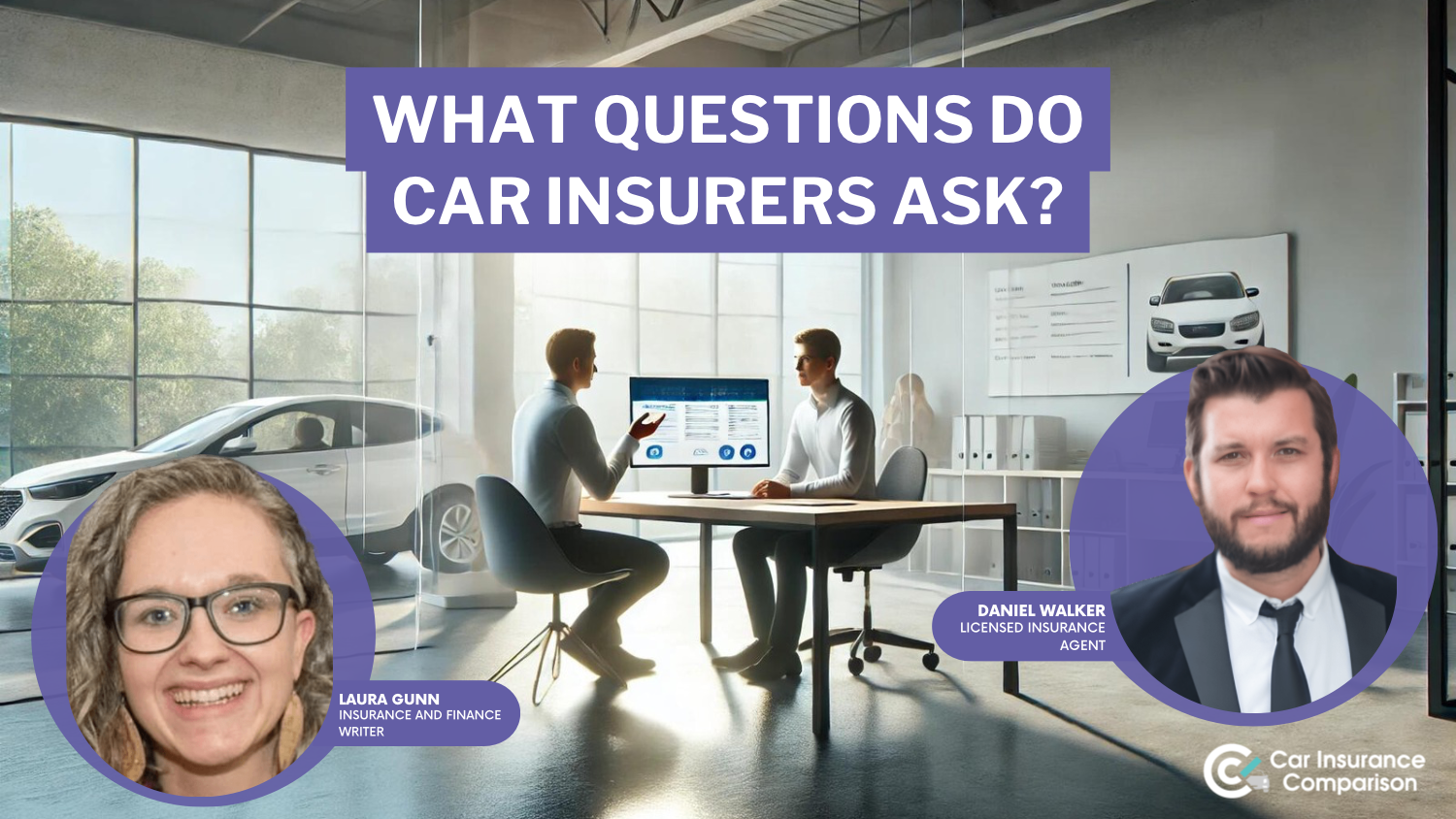
Frequently Asked Questions
What should I do after a car accident?
After a car accident, prioritize safety by checking for injuries and contacting emergency services if necessary. Exchange information with the other driver(s), document the accident scene, and notify your insurance company to report the incident. Follow their guidance on filing a claim and obtaining any necessary repairs.
Can I switch car insurance companies at any time?
Yes, you can switch car insurance companies at any time, even if your policy hasn’t expired. However, it’s important to consider any cancellation fees, the timing of the switch, and ensure you have coverage in place before canceling your current policy.
Does my car insurance cover rental cars?
It depends on your policy. Some car insurance policies provide coverage for rental cars, but it’s typically limited to liability coverage. If you want additional coverage, you may need to purchase a separate insurance policy from the rental car company or consider rental reimbursement coverage.
What is a deductible?
A deductible is the amount you must pay out of pocket before your insurance coverage kicks in. For example, if you have a $500 deductible and your claim is $2,000, you would pay $500, and the insurance company would cover the remaining $1,500.
What is uninsured/underinsured motorist coverage?
Uninsured/underinsured motorist coverage provides protection if you are involved in an accident with a driver who doesn’t have insurance or has insufficient coverage. It helps cover your medical expenses and property damage when the at-fault driver cannot pay.
What is the difference between comprehensive and collision coverage?
Comprehensive coverage helps protect your vehicle against non-collision incidents, such as theft, vandalism, fire, or natural disasters. Collision coverage, on the other hand, covers damage to your vehicle resulting from collisions with other vehicles or objects.
Get a FREE Quote in Minutes
Insurance rates change constantly — we help you stay ahead by making it easy to compare top options and save.


